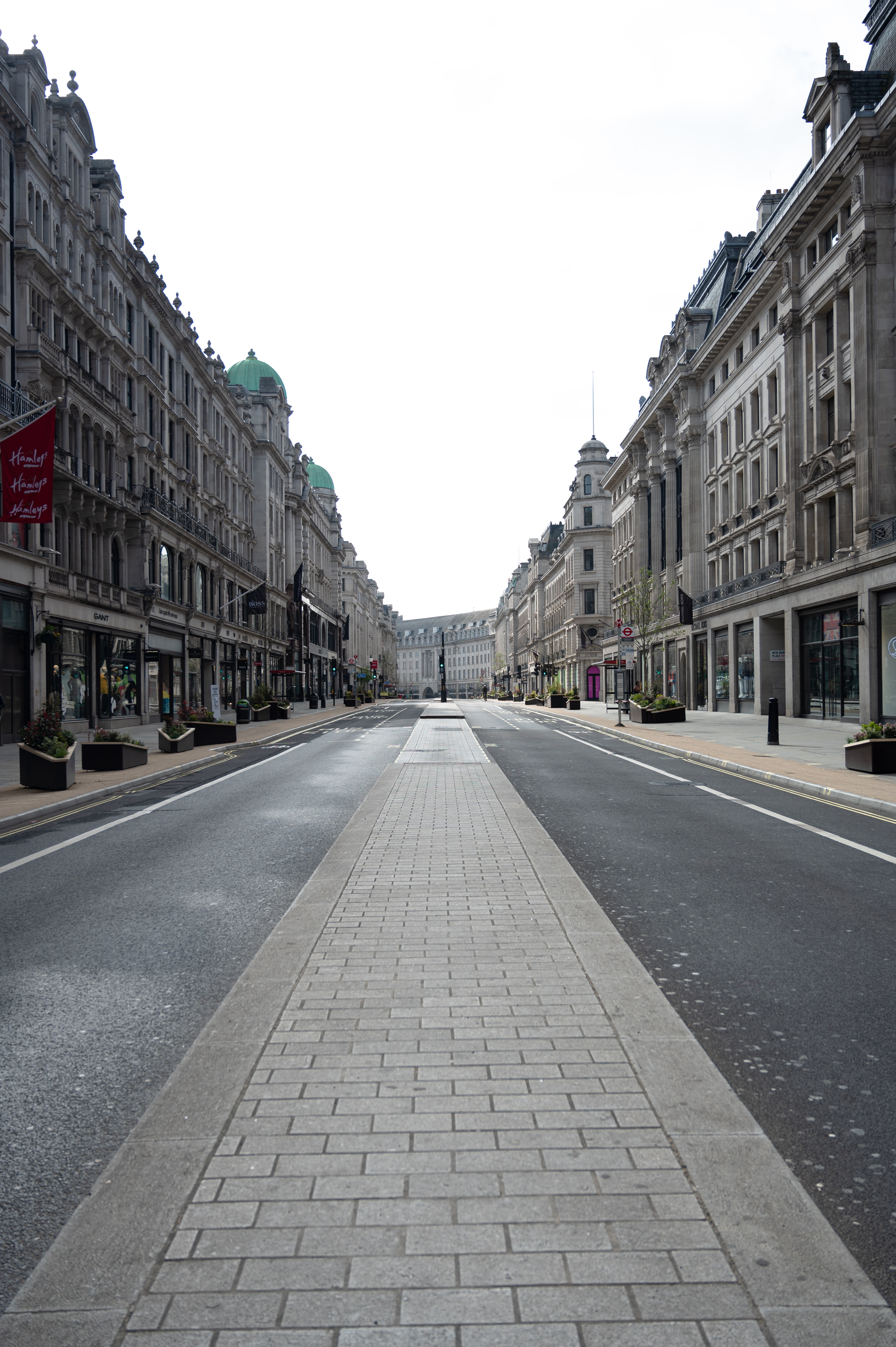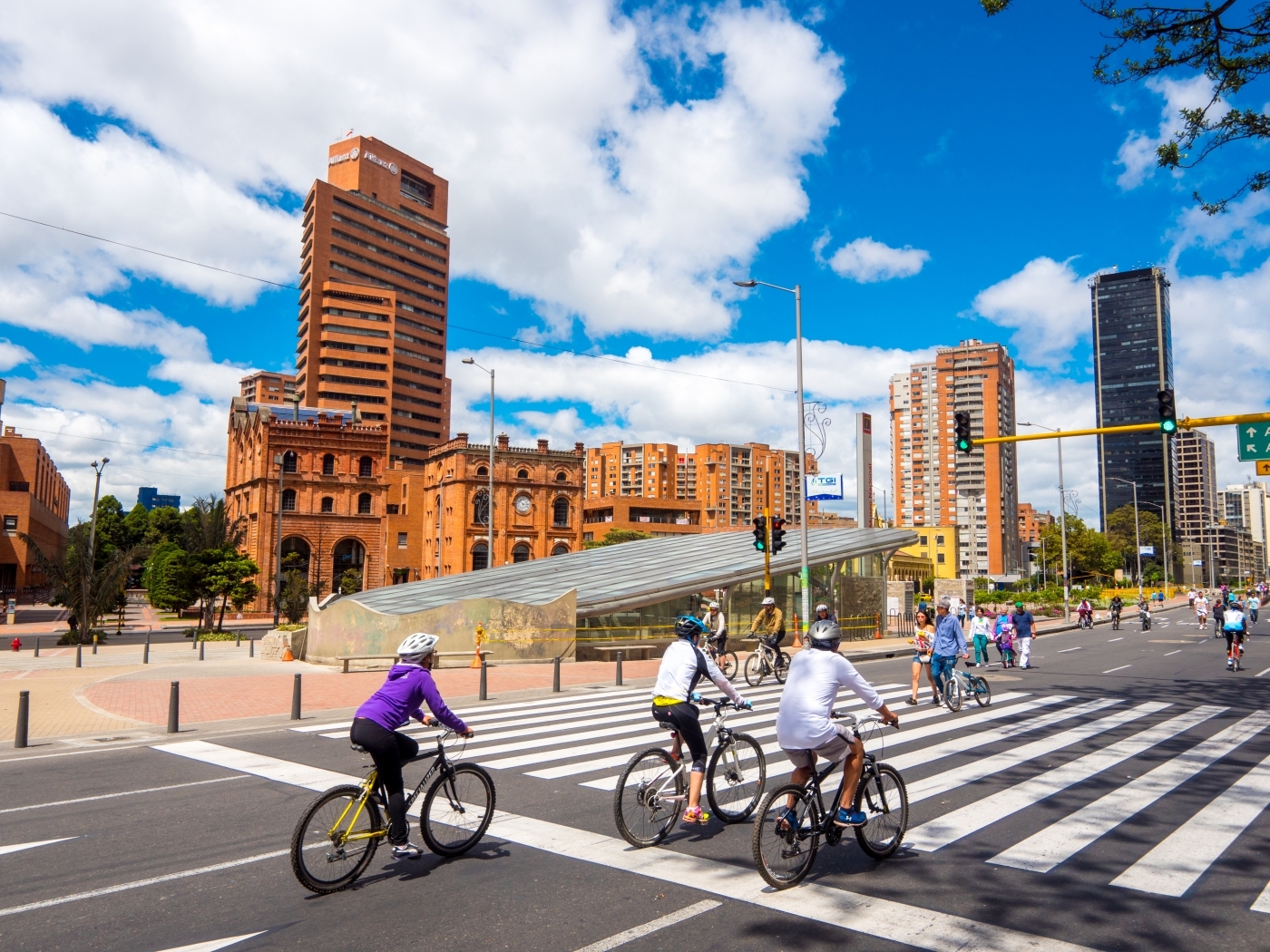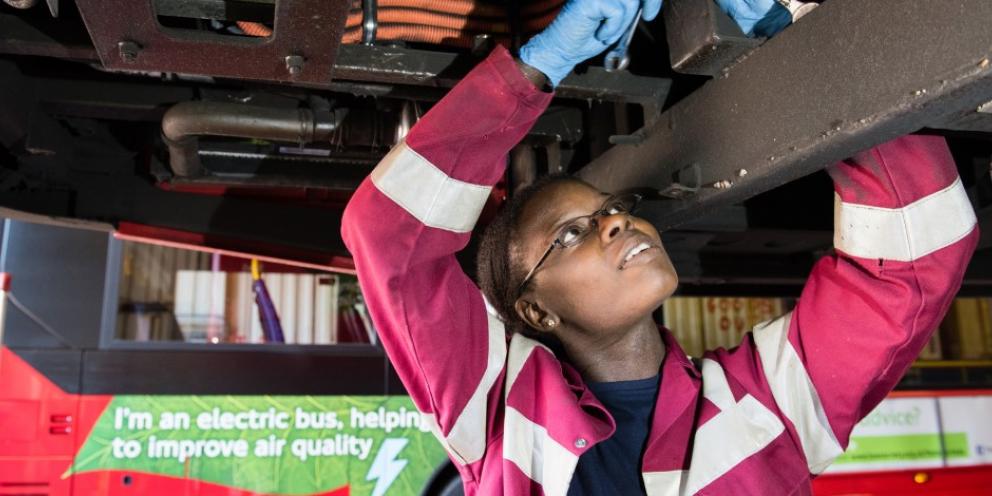Talking Points looks at the future of work
Posted on 06 May 2021 Categories: Blog, Climate crisis, Coronavirus, Inequality, Local initiatives, Talking Points, Work
by Rethinking Poverty
As the UK takes further steps towards ending the restrictions of lockdown, April’s Talking Points looks at what the pandemic has meant for the future of work and what changes in working patterns might mean for cities. While nothing much seems to change with poverty and inequality in the UK, we see a possible end to the ‘Washington consensus’ that has dominated economic thinking for decades, renewed talk of a green new deal, and yet more inspiration from Joe Biden’s America.
The future of work
The pandemic has seen a massive increase in home working. What will happen now as we ease back into ‘normality’? Significantly, seven in 10 UK employees who have been working remotely during Covid-19 told a survey by Boston Consulting Group that they felt as productive at home as in the workplace, with 53 per cent saying ‘they would prefer a hybrid model in future, splitting their time equally between their desk and a remote location’. HSBC and JP Morgan are to have thousands of employees working permanently from home, some full-time, others part-time. Businesses have discovered during the pandemic that they can function with nearly all of their workers out of the office, writes the New York Times, an arrangement many intend to continue in some form.
In the charity sector, according to a survey from Blackbaud Europe, 90 per cent of people believe that flexible working policies are the future and 80 per cent would like to work from home more often.
Home working is not without downsides, however. ‘I have been really impressed with how productive we can be without being together in a building,’ said one banker. ‘But there are times, if I’m really honest, that I miss doing some creative thinking together.’
Is the ‘exhausting cult of productivity’ finally over?

In the US, says the Guardian’s Zoe Williams, they call it ‘hustle culture’: ‘the idea that the ideal person for the modern age is one who is always on, always at work, always grafting. Your work is your life, and when you are not doing your hustle, you have a side-hustle.’ But the pandemic has exposed the problems with this whole structure. One ‘uncomfortable but helpful’ realisation is ‘that the jobs with the least financial value are the ones we most rely on’. Meanwhile, says Williams, ‘many of the rest of us have had to confront the nonessentiality of our jobs’. She cites Laura, 43, who had worked in private equity for 20 years, who realized that ‘it was all about making profit, and focusing on people who only care about the bottom line … I just didn’t want to do it any more.’ She ended up giving up her job to be a vaccination volunteer. Charlotte White, 47, similarly gave up a 20-plus-year career in advertising to volunteer at a food bank. ‘It’s the opposite of the advertising bullshit. I’d end each day thinking: “My God, I’ve really helped someone”.’
One way forward for the future of work may be the four-day week. Although it is also proving good for productivity and for attracting/retaining staff, data on the many experiments around the world show all the expected advantages such as lower stress levels, better mental health, better work-life balance, reductions in emissions, etc.
What about gig working?
A recent poll of more than 700 Amazon delivery drivers conducted by campaign group Organise found 82 per cent saying they have to drive dangerously, for example breaking the speed limit, and take no breaks, in order to hit targets which can be as high as 300 deliveries a day.
But could things be looking up in the future of work? Just Eat boss, Jitse Groen, has said he wants to end gig-working across Europe at his company. Just Eat is to offer 1,500 takeaway couriers in Liverpool minimum pay, sick pay and holiday pay by the end of the year as it shifts away from using independent contractors. This is an expansion of a worker model for couriers that it was already operating in London and Birmingham, where 2,000 riders had signed up.
What does the changing future of work mean for cities?

The shift towards home working will have lasting consequences for our city centres and the service businesses – including sandwich shops, coffee stands and dry cleaners – which before Covid relied on steady footfall from office workers. Those businesses may find town centres less attractive in future, says Catherine McGuinness at the Corporation of London. ‘We may see a shakeout from the centre to the areas where people are basing themselves for the other days.’
In New York, it is suggested, a dramatic rise in home working could ‘wallop the big property companies that build and own office buildings – and lead to a sharp pullback in construction, steep drops in office rents, fewer people frequenting restaurants and stores, and potentially perilous declines in the tax revenue of city governments and school districts’.
Creating a new kind of space …
‘The city will be a new kind of space,’ says urban designer Thomas Heatherwick. When people no longer have to come to work, you will have to make them want to come. ‘You will have to create spaces built with a care that makes people feel better, more social, for being in them.’ He gives the example of the Moscow underground. ‘You see these stations that are 80 years old, and they’ve got stunning tiling. They’ve got chandeliers! You think of the extra initial cost of those tiles, and light fittings. And then you say, every day, maybe 200,000 people see them.’ Some cities, Madrid for example, have been making changes, for example reclaiming public spaces with pedestrianisation, but sadly in London and the UK he doesn’t yet sense that enough people ‘are really thinking of how to cherish the city as a new kind of space, as a room, as a meaningful gathering place’.
… and spaces that are safer for women
In the UK, Sarah Everard’s murder has prompted debate around women’s safety, with 80 per cent of women of all ages having been sexually harassed in public spaces. In Bogota, the Colombian capital, work is being done on gender equity in cycling and public spaces in order to make it more inclusive. What can we learn from this? In addition to a network of cycling infrastructure with integrated services like benches, water fountains, public toilets, safe cycle parking and air pumps, we need to better understand and respond to women’s perceptions and experiences of safety in public spaces, and we need ‘campaigns to address machismo, patriarchy and gender-based violence in public space’.

… and more devolution
According to Centre for Cities’ polling by Savanta ComRes, eight in ten people back more devolution to English cities. Barcelona is yet again an example of what cities can do, installing Spain’s first photovoltaic pavement as part of the city’s drive to become carbon neutral by 2050.
Poverty and inequality
Unlike the future of work, here little seems to change, with Forbes’ annual list of the world’s wealthiest individuals revealing that the combined wealth of just 20 of the top billionaires is greater than that owned by 50 per cent of the world’s population. As for the top 1 per cent of Americans, they have a combined net worth of around $35.2 trillion. That’s comparable to just over 30.4 per cent of all household wealth in the US.
At the other end of the scale, Guardian analysis shows that young Black workers have been hit disproportionately hard during the pandemic, with more than 40 per cent unemployed – three times worse than among white workers of the same age. The Black youth unemployment rate was the same in the last quarter of 2020 as in the early 1980s, around the time the Brixton riots took place. Before the pandemic, between January and March 2020, 10.6 per cent of young white people were unemployed compared with 25.3 per cent of young Black people.
In Britain, the rich are richer but the poor far poorer than in Europe. While many can live with people here having incomes 17 per cent higher than their equivalents in France, ‘no one should be happy with the fact that our poorest households have to survive on incomes a staggering 20% lower than those across the Channel (£14,700 v £18,500)’, says Torsten Bell of the Resolution Foundation. ‘That means higher poverty, lower living standards and no margin when things go wrong, such as a pandemic hitting.’
Surprisingly, a police chief has said cutting poverty and inequality is the best way to reduce crime, calling for more money for deprived areas to thwart criminals’ attempts to recruit those left desperate by deprivation. If he was given £5 billion to cut crime, says Andy Cooke in an interview given to mark his retirement as chief constable of Merseyside police, ‘he would put £1bn into law enforcement and £4bn into tackling poverty’.
End of the Washington consensus?
Will the pandemic have the effect of ending our old economic orthodoxies? ‘A wealth tax to help pay for the cost of fighting the pandemic. An international agreement to prevent a race to the bottom on corporate tax. An insistence that recovery from the second severe crisis in just over a decade should be green and inclusive. A conviction that governments should spend whatever it takes to fend off the threat of mass unemployment, paying no heed to the size of budget deficit. There’s nothing startlingly new about any of these ideas,’ says Larry Elliott. ‘What is different is that these are no longer just proposals put forward by progressive thinktanks or marginalised Keynesians in academia, but form part of an agenda being pursued by the International Monetary Fund and the US Treasury under Joe Biden’s presidency.’ If the old Washington consensus believed in small states, low taxes and balanced budgets, he says, the new Washington consensus believes in ‘activist governments, inclusive growth and a green new deal’.
A green new deal is on the cards on both sides of the Atlantic. Research by Green New Deal UK has found that a green stimulus plan could create 1.2 million UK jobs in two years and more than 2.7 million jobs during the next decade. The programme would focus on green and digital infrastructure, research and development, energy and care work.
‘Taxing the super-rich and showing ordinary people that climate action can directly benefit them is the best way to build support for ambitious legislation,’ writes Kumi Naidoo of the Green Economy Coalition for Climate Change News in advance of Joe Biden’s 22-23 April climate summit. ‘Tackling inequality is our best and only chance to tackle climate change.’

More inspiration from the US
In March’s Talking Points, we drew inspiration from Biden’s notably progressive $1.9 trillion COVID-19 Stimulus Package, ‘one of the most important pieces of legislation of our lifetimes’ according to conservative columnist David Brooks. Now Biden has announced the American Families Plan. The $1.8 trillion plan to overhaul the US’s social infrastructure focuses heavily on children, including a national childcare programme, universal preschool and free tuition for community college, as well as health insurance subsidies and tax cuts for low and middle-income workers.
‘Biden didn’t have to strain to see the future because he is already leading the nation toward it,’ writes Jason Easley of PoliticusUSA of Biden’s ‘sweeping $1.8tn package for families and education’.
Want to keep up-to-date with more articles like this? Sign up to our newsletter.
Posted on 06 May 2021 Categories: Blog, Climate crisis, Coronavirus, Inequality, Local initiatives, Talking Points, Work
